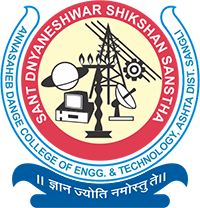Vision :
To produce exclusive software professionals who shall effectively contribute to the leveraging field of Artificial Intelligence and Data Science.
Mission :
- M-1 : Providing Excellent Infrastructure facilitating the students and faculty members with recent trends and technologies.
- M-2 : Imparting High-Quality Education to the students also instigating them with ethical and moral values.
- M-3 : Enabling students to enhance their research abilities to address various society-oriented issues through Innovative projects.
- M-4 : Collaborating with various Industries to make students industry ready.
Programme Educational Objectives (PEOs)
PEO-1 : Ability to understand, apply, analyse, design models and applications for all the real-world scenarios related to Artificial Intelligence and Data Science.
PEO-2 : Practice engineering in a broader aspect and exhibit professional leadership qualities in their field.
PEO-3 : Enhancing technological competence to withstand the challenges in the volatile IT industry.
PEO-4 : To be committed in Life-long research and Learning activities that supports societal development.
Program Outcomes (POs)
Engineering Graduates will be able to:
PO-1 : Engineering knowledge: Apply the knowledge of mathematics, science, engineering fundamentals, and an engineering specialization to the solution of complex engineering problems
PO-2 : Problem analysis: Identify, formulate, review research literature, and analyze complex engineering problems reaching substantiated conclusions using first principles of mathematics, natural sciences, and engineering sciences.
PO-3 : Design/development of solutions: Design solutions for complex engineering problems and design system components or processes that meet the specified needs with appropriate consideration for the public health and safety, and the cultural, societal, and environmental considerations
PO-4 : Conduct investigations of complex problems: Use research-based knowledge and research methods including design of experiments, analysis and interpretation of data, and synthesis of the information to provide valid conclusions.
PO-5 : Modern tool usage: Create, select, and apply appropriate techniques, resources, and modern engineering and IT tools including prediction and modeling to complex engineering activities with an understanding of the limitations.
PO-6 : The engineer and society: Demonstrate understanding of contemporary knowledge of engineering to assess societal, health, safety, legal and cultural issues and the consequent responsibilities relevant to the professional engineering practice
PO-7 : Environment and sustainability: Understand the impact of the professional engineering solutions in societal and environmental contexts, and demonstrate the knowledge of, and need for sustainable development.
PO-8 : Ethics: Apply ethical principles and commit to professional ethics and responsibilities and norms of the engineering practice.
PO-9 : Individual and team work: Function effectively as an individual, and as a member or leader in diverse teams, and in multidisciplinary settings.
PO-10 : Communication: Communicate effectively on complex engineering activities with the engineering community and write effective reports and design documentation, make effective presentations, and give and receive clear instructions.
PO-11 : Project management and finance: Demonstrate knowledge and understanding of the engineering and management principles and apply these to one’s own work, as a member and leader in a team, to manage projects and in multidisciplinary environments
PO-12 : Life-long learning: Recognize the need for, and have the preparation and ability to engage in independent and life-long learning in the broadest context of technological change.
Program Specific Outcome (PSO)
PSO 1 : Practically Applying the skills & knowledge acquired to various Inter/Multi/Trans disciplinary problem areas.
PSO 2 : Enrich Leading abilities in the field of Artificial Intelligence and Data Science to qualify for employability

